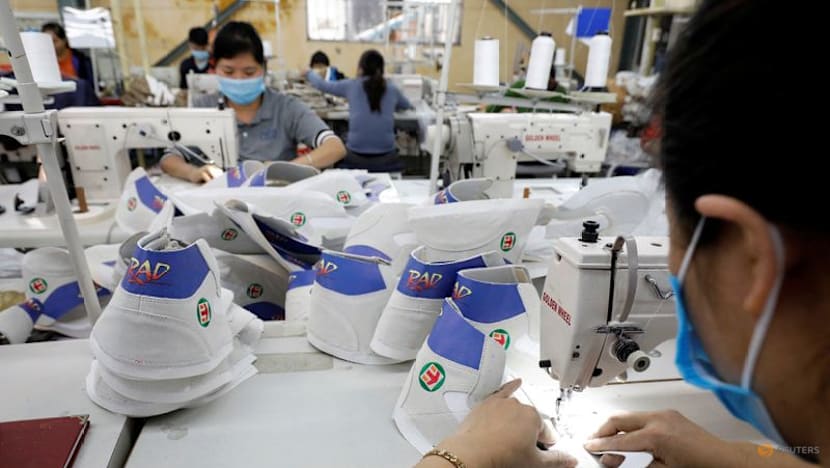World Bank cuts Vietnam's growth forecast to 6.6% as tariffs bite

FILE PHOTO: Employees work at a shoe factory for export in Hanoi, Vietnam December 29, 2020. REUTERS/Kham/File Photo
HANOI :The World Bank on Monday trimmed its forecast for Vietnam's economic growth on evidence that U.S. tariffs were starting to have an impact on the Southeast Asian exporter's shipments.
The World Bank cut its GDP forecast for Vietnam to 6.6 per cent from 6.8 per cent this year, saying activity is expected to moderate over the rest of the year as export growth normalises after a strong first-half performance.
The World Bank's new forecast is significantly lower than the government's official target of 8.3 per cent-8.5 per cent growth.
"As an export-oriented economy, Vietnam remains vulnerable to slower global growth and softening demand from major trading partners," the World Bank said.
"Trade-policy uncertainty may also begin to weigh on business and consumer confidence."
Vietnam's biggest export market, the United States, imposed a 20 per cent tariff on its goods from August 7, with transshipments from third countries through Vietnam facing a levy of 40 per cent.
Oxford Economics said on Monday that Vietnam's goods export values contracted a seasonally adjusted 3.6 per cent in August from a month earlier.
Government data on Saturday showed August exports rose 14.5 per cent from a year earlier and were up 2.6 per cent from July, without providing seasonally adjusted data.
"The pace of export growth should continue easing from tariff effects, but electronics should offer some resilience," Oxford Economics said in a note.
The World Bank said economic growth was projected to ease to 6.1 per cent in 2026 before accelerating to 6.5 per cent in 2027, supported by a recovery in global trade and Vietnam's continued appeal as a competitive manufacturing base.
Prime Minister Pham Minh Chinh said on Saturday that global trade tensions, along with geopolitical and military conflicts, are affecting production and supply chains, and warned of mounting pressure on inflation and the exchange rate.
"Domestic activity was still strong...consumption and government-led investments should continue to support growth even as export growth eases further," Oxford Economics said.













